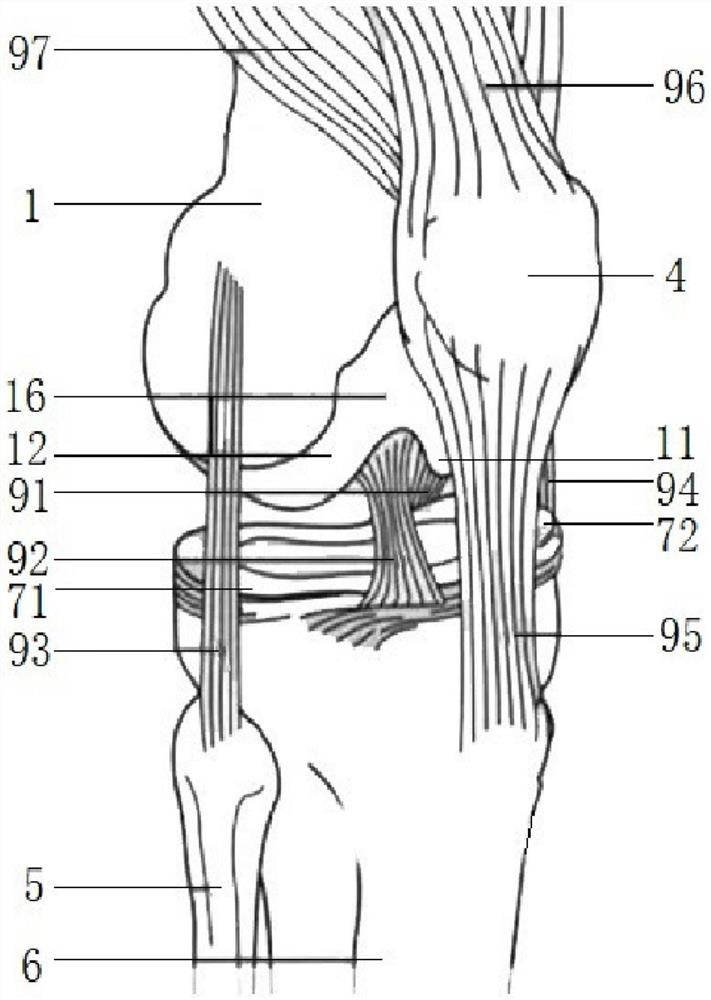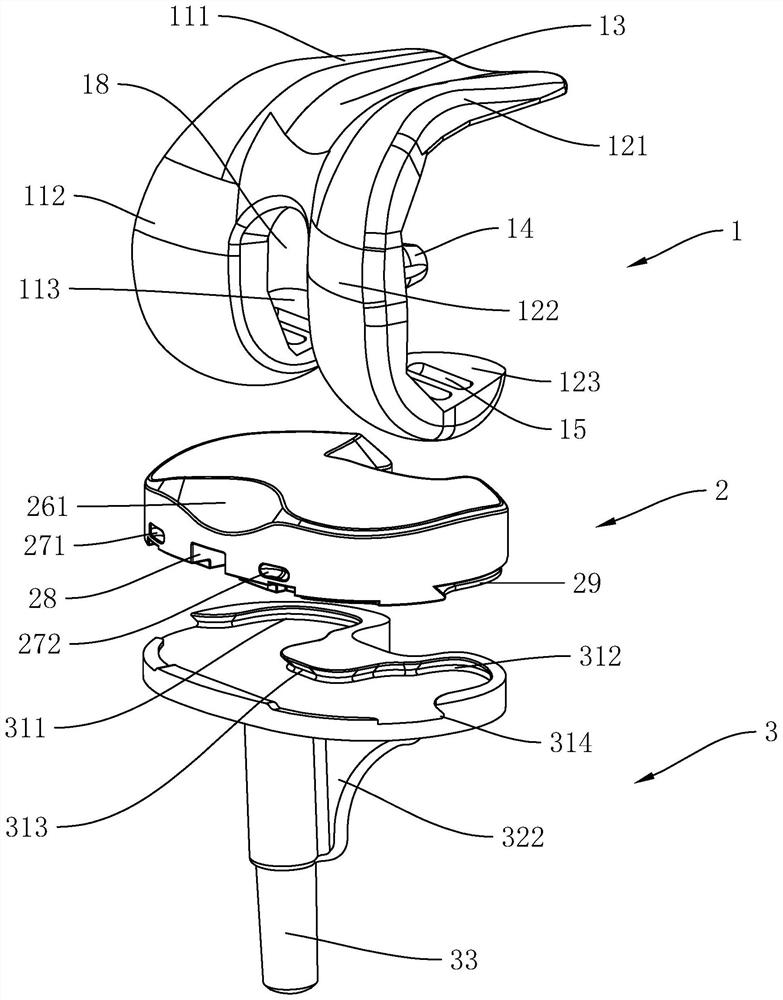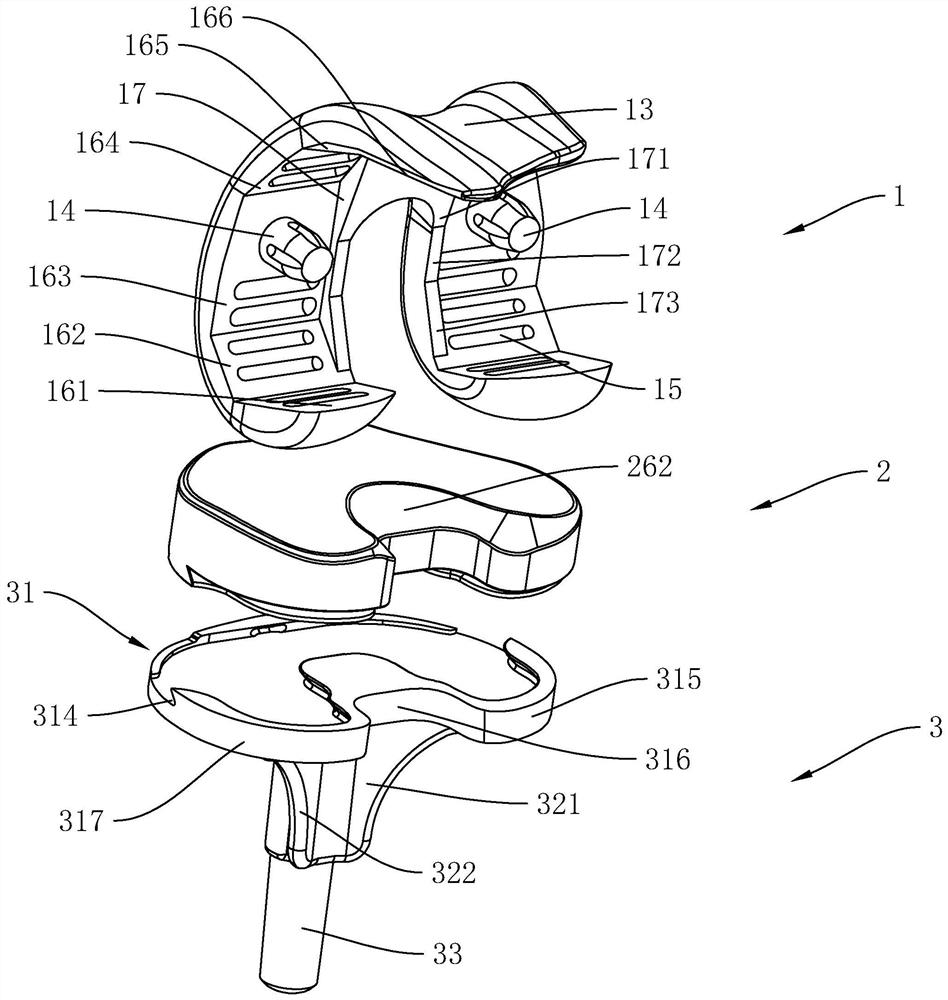An anatomical knee joint femoral prosthesis retaining posterior cruciate ligament
A cruciate ligament and femoral prosthesis technology, applied in the field of artificial joints, can solve the problems of prosthesis interference and extrusion on soft tissues, poor proprioception of patients, low patient satisfaction, etc. The effect of avoiding the risk of failure
- Summary
- Abstract
- Description
- Claims
- Application Information
AI Technical Summary
Problems solved by technology
Method used
Image
Examples
Embodiment Construction
[0099] The present invention will be described in further detail below in conjunction with the accompanying drawings.
[0100] An anatomical knee joint prosthesis, including femoral condyle 1, tibial plateau pad 2 and tibial plateau rest 3, see figure 2 and image 3 , is the structural diagram of the femoral condyle 1, tibial plateau pad 2 and tibial plateau support 3 when the femur is horizontal, the femoral condyle 1 is a "C" shape with a detachable support 14 in the middle from the side view, and the starting end of the "C" shape The slope of the position is the anterior condyle, and the thickness of the anterior condyle gradually becomes thinner toward the proximal end. The posterior condyle is located at the end of the "C" shape, and the distal end of the femur is located at the opposite side of the "C"-shaped opening. The outer surface of the "C" shape for smooth.
[0101] Viewed from the front, the left side is the medial condyle 11, the right side is the lateral con...
PUM
 Login to View More
Login to View More Abstract
Description
Claims
Application Information
 Login to View More
Login to View More - R&D
- Intellectual Property
- Life Sciences
- Materials
- Tech Scout
- Unparalleled Data Quality
- Higher Quality Content
- 60% Fewer Hallucinations
Browse by: Latest US Patents, China's latest patents, Technical Efficacy Thesaurus, Application Domain, Technology Topic, Popular Technical Reports.
© 2025 PatSnap. All rights reserved.Legal|Privacy policy|Modern Slavery Act Transparency Statement|Sitemap|About US| Contact US: help@patsnap.com



